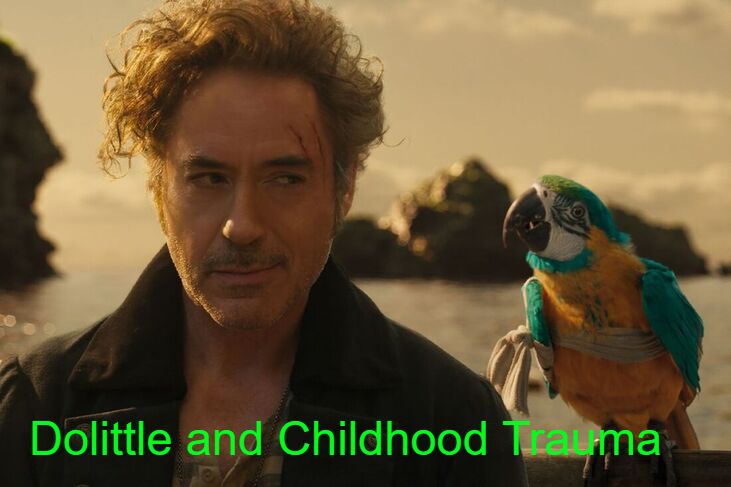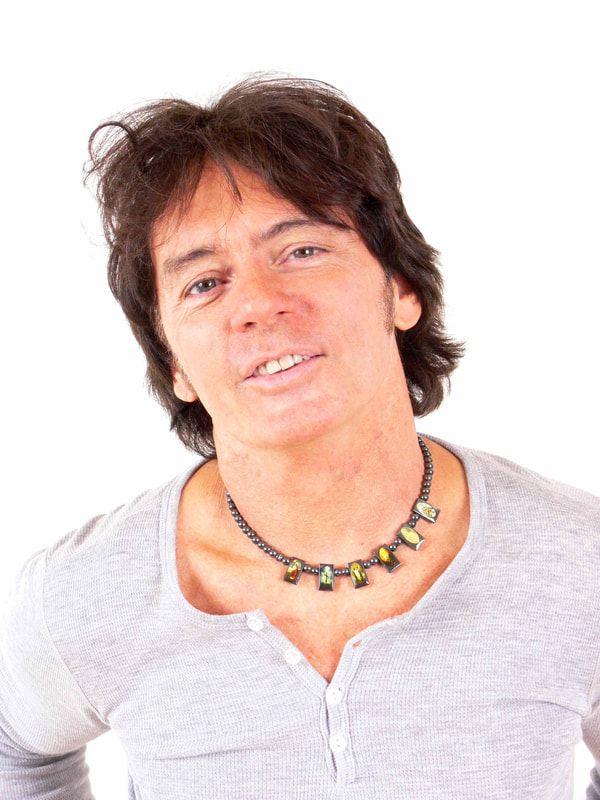Dolittle: An excellent depiction of the effects of Childhood Trauma.
Last weekend, my three nephews, my niece, my sister and myself had the pleasure of going to see “Dolittle”, a very entertaining and lively “children’s” movie that takes a risky and bravely imaginative slant on the Hugh Lofting classic.
“Dolittle” is the story of renown animal psychologist John Dolittle, who, after he lost his wife on an adventure at sea, becomes a self-blaming recluse living in isolation away from anything human. And although he is summoned to heal the Queen of England, coerced to revive a dying squirrel and forced to reconcile a past that nearly kills him, it is not until he nurtures and accepts his own Inner Child does he find the true healing for his ills.
When film reviewers talk about what constitutes a great movie, they talk of dazzling and believable characters, a great story, a wonderful and consistent world, the tone, the relationships, the themes, the genre, is it heartfelt—funny? They write of the outer and inner journeys that the main characters find themselves going on. The outer or external journey is the path, that is, what is driving the character to his or her desire, their physical goal and hurdling the obstacles in their midst in the doing. The inner or interior journey actively demonstrates what the character needs, that is, a quality or trait they either lost or never had, but now must acquire in order to be the person that achieves the outer goal. This is simply good story.
Watching “Dolittle”, I saw something else as well, that to me, was more profound. I saw a psychological journey. I saw a cast of characters both human and non, living their lives in perpetual replication to the dysfunctional upbringing they still carry with them. Writer/director Stephen Gaghan proves that unresolved childhood trauma will continue to affect us until we grieve our past hurts and take the vulnerable risk to be who we are really meant to be. Okay, hey, whoa, don’t click that mouse—at least let me make my case.
Doctor Dolittle undeniably feels he has been betrayed by life, deserted. The only human being he ever took a risk to really get to know, his wife Lily, has been taken from him. Right there one gets the sense that this whole magical communicative ability with the feathered and the four-legged was necessitated years before the good doctor became just that. The wound to Dolittle is not only that he lost Lily, of course that is it for the movie, however, let us keep in mind he was talking to animals long before that. Lofting, the original author and creator made it known that Dolittle first learned to talk to animals from his pet parrot, Polynesia, (with mothering attention), and that makes sense, but what was the stimulus there?
It also makes sense that the original wound, or reason he became an animal doctor in the first place, occurred years earlier, in his youth, as a young boy? How so? If losing Lily puts him in a funk for years, has him feeling abandoned by life, has him unwittingly behaving as a victim, has him living in a distorted version of himself and what really happened--well then this has to be a place he was at before as this self-hermitizing is rather extreme (historical). I mean, plenty of people lose their spouse, grieve and move on don’t they? Why can't he?
Now, I’m going to go even more out on a limb here to draw the defining psychology of the behavior of Doctor Dolittle as he is depicted in this installation, and, maintain that his unresolved grief and self-imposed reclusion is a result of events long before Lily. I will assert, and stay with me here, that somewhere, somehow, someway as a young boy, Dolittle was neglected, deceived and/or ignored by his main caregivers, his parents. He had nobody truly to give him what he needed so he backed off—isolated. He realized at that very young moment in his life that humans can’t be trusted, will let you down, leave you and just don’t care.
Therefore, the animals became his respite, the symbolic characters who would represent the only people in his world he could trust, turn to and be heard by, yes, “heard” by. And now, when he finally does take the risk and gets what he feels, he needed all along, it is taken from him--just like back then. However, this time, the animals are not enough to “fix” him, provide true recovery or offer a world where he could truly be himself. Those days are over. Without chance, without risk, without trust and without hope all he has now is survival. Truly grieving, not only Lily but the history of this, that is the original situational abandonment and neglect he suffered at the hands of his parents would help immensely. However, to ultimately bring him into his own, into the person he would have to be, into his True Self…well that would mean taking another one of those scary risks again—to trust again and that is never going to happen. Or is it?
Enter young Tommy Stubbins, the son of a hunter who is unable to kill animals, misunderstood, emotionally neglected and in need of a surrogate mentor/father that he senses is Dolittle. He is representative of that child in Dolittle who didn’t get the nurturing—but Tommy is determined to get his. He is who Dolittle needs to revisit to heal. Tommy wants to be Dolittle’s apprentice but Dolittle stalls this kid, his own very Inner Child who comes a calling, at every turn for a good part of the film which also creates many of the hurdles of Tommy’s own nice little plot-line while adding to the fine metaphors and symbolism this movie embraces. It is not until Tommy takes the risk to go for it and defies Dolittle by jumping on the boat and demanding he be part-of this, does their uneasy partnership truly begin and progress. Albeit clumsily, Dolittle entertains the risk of Tommy, they are now a team—sort of.
Together, they sneak into the castle, awkwardly supporting each other, and, when they combine their respective talents and slay (cure) the misunderstood dragon that is guarding the fruit of Eden, necessary to save the Queen, themselves and the day--they become one. The children have grown up. They are equal and the dialogue and relationship now reflects this. Dolittle, by taking this vulnerable risk and getting close to Tommy, also slayed his misaligned perceptions and distorted beliefs. This is where the boy and the man merge, complete their psychological growth and become who thy are meant to be to each other and to themselves. It took a lot for Dolittle to become this but when Tommy, who symbolically is the Doc’s own younger self, presses on inelegantly sustaining his own susceptibility, Dolittle finally recognizes this--the medicine takes effect.
The theme of a doctor who needs a dose of his own medicine (“physician, heal thyself”) is clear. Also clear is the idea that what we learned or mis-learned from ages 0 to 18 is going to shape not only how we see the world but how we see ourselves participating (or not) in it. It is not only the basis of our successes, character, and good living but the root of all of our self-sabotage and dysfunction. Not only does Dolittle meet his True Self and come around to who he is by dealing with his past (metaphor of castle and pissed ex-father in law) but so do all of the characters who have such issues programmed into them. Chee Chee the gorilla lives in misperception and self-doubt, not realizing one iota of how powerful he really is until, under the stakes of Dolittle being eaten, he acts and comes into his own; the ferocious tiger speaks of how his mother made him feel inadequate; a very tender yet funny moment is seen when the Ostrich and the Bear resolve their rivalry issues by sharing about their own poor upbringing; Polly the parrot is the Mom who would die for her kids; the dragonfly who has low self-esteem and cannot do anything right, until he can, and the squirrel hides behind the façade of a tough guy. Even the main symptoms of intestinal issues and IBS, the earmark of living with PTSD is suffered by the menacing dragon and she too changes when she is cured by having some genuine loving care shown to her.
As for me, I’m still out on this limb but the branch is about to break and I am either going to fall and be a victim or take the scary risk, spread these wings and soar. The choice is mine. Ah…yeah, I’m going to post this.
Terry McFadden


 RSS Feed
RSS Feed
